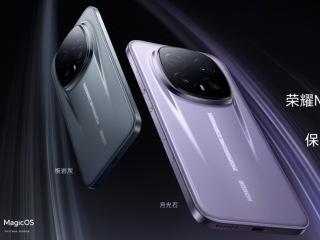- Home
- Mobiles
- Mobiles News
- Samsung Galaxy S9 Benchmarks Show Exynos 9810 SoC Slower Than Recent iPhone Processors
Samsung Galaxy S9 Benchmarks Show Exynos 9810 SoC Slower Than Recent iPhone Processors

Smartphones in the Samsung Galaxy S-series use two different processors - Qualcomm's flagship mobile Snapdragon SoC and it's own flagship Exynos SoC - depending on the market. The all-new Samsung Galaxy S9 and Galaxy S9+ will make use of the latest processors - the Snapdragon 845 and Exynos 9810. As per the latest benchmark results, the Exynos 9810 SoC beats the Snapdragon 845 SoC but falls well behind Apple's A10 and A11.
As per benchmarking of a demo handset at the Samsung Galaxy S9 launch event by Anandtech, the Exynos 9810 is faster than its predecessor, Exynos 8895, but not as fast as Apple's processors. A GeekBench 4 single core test showed integer and floating point scores of 3,734 and 3,440 respectively for the Exynos 9810. Meanwhile, the A11 Bionic scored 4,630 and 3,958 respectively. In fact, the A10 Fusion with 4,007 points, scored better than the Samsung SoC for the Integer score. Interestingly, the Snapdragon 845 SoC fell behind the Exynos 9810 as its integer and floating point scores stood at 2,718 and 2,041 respectively. The ranking remained the same even when the scores, both integer and floating points, were broken down per-megahertz.
Coming to benchmarks for the smartphones rather than the processor, WebXPRT 2015 results showed that the iPhone X and iPhone 8 scored 352 and 349 respectively, while the Samsung Galaxy S9+ could manage only 178 points. Notably, the Qualcomm 845 SoC's score of 291 was close to those of the iPhone models. Meanwhile, Speedometer 2.0 result showed an even bigger gap. While the Galaxy S9+ scored 26.70 in the benchmark, the iPhone 8 scored 88.90 and iPhone X received 87.20 points. Here too, the Snapdragon 845 SoC managed a better score of 43.10. Interestingly, even Apple's iPhone 7 managed to beat the Galaxy S9+ with Exynos SoC, in both the scores. Additionally, the Snapdragon processor returned better results even in the PCMark Work 2.0's benchmarks.
"What seems clear is that there is something is very very wrong with the Exynos 9810 S9+ that I tested. It was barely able to distinguish itself from last year's Exynos 8895, let alone the Snapdragon 845...," says Andrei Frumusanu of Anandtech. He added that while the larger cores were reaching their maximum set clock speed of 2.7GHz, issues with the scheduler and the DVFS configuration may have meant "that there is barely any activity on the big cores."
Meanwhile, a Samsung spokesperson has reportedly confirmed that the demo unit in MWC was running special firmware that might not have been optimised.
When it comes to clock speeds, it's worth noting that the four performance cores used in the Galaxy S9's processor were clocked at 2.7GHz, down from the maximum 2.9GHz claimed at the launch.
Coming to the Mali G72MP18 GPU present in the Galaxy S9 Plus. It scored 45.70 peak frames per second on GFXBench Manhattan 3.1, and the iPhone 8 with 60.34 points and the iPhone X with 64.19 points beat it by a decent margin. Even in the GFXBench T-Rex 2.7 test, the Galaxy S9 Plus peaked at 143.4 frames per second but the iPhone 8 and iPhone X managed 171.4 and 176.6 peak frame rates respectively.
While the benchmark scores show a disappointing smartphone, we should take it with a pinch of salt and wait for the final release of the Galaxy S9. "Hopefully with more time we will be able to investigate the working of the new SoC and, fingers crossed, today's results are not representative of shipping product as that would otherwise be an utterly massive disappointment," says Frumusanu.
Catch the latest from the Consumer Electronics Show on Gadgets 360, at our CES 2026 hub.
Related Stories
- Samsung Galaxy Unpacked 2025
- ChatGPT
- Redmi Note 14 Pro+
- iPhone 16
- Apple Vision Pro
- Oneplus 12
- OnePlus Nord CE 3 Lite 5G
- iPhone 13
- Xiaomi 14 Pro
- Oppo Find N3
- Tecno Spark Go (2023)
- Realme V30
- Best Phones Under 25000
- Samsung Galaxy S24 Series
- Cryptocurrency
- iQoo 12
- Samsung Galaxy S24 Ultra
- Giottus
- Samsung Galaxy Z Flip 5
- Apple 'Scary Fast'
- Housefull 5
- GoPro Hero 12 Black Review
- Invincible Season 2
- JioGlass
- HD Ready TV
- Laptop Under 50000
- Smartwatch Under 10000
- Latest Mobile Phones
- Compare Phones
- Vivo Y500i
- OnePlus Turbo 6V
- OnePlus Turbo 6
- Itel Zeno 20 Max
- OPPO Reno 15 Pro Mini 5G
- Poco M8 Pro 5G
- Motorola Signature
- Vivo Y50e 5G
- Lenovo Yoga Slim 7x (2025)
- Lenovo Yoga Slim 7a
- Realme Pad 3
- OPPO Pad Air 5
- Xiaomi Watch 5
- Huawei Watch 10th Anniversary Edition
- Acerpure Nitro Z Series 100-inch QLED TV
- Samsung 43 Inch LED Ultra HD (4K) Smart TV (UA43UE81AFULXL)
- Asus ROG Ally
- Nintendo Switch Lite
- Haier 1.6 Ton 5 Star Inverter Split AC (HSU19G-MZAID5BN-INV)
- Haier 1.6 Ton 5 Star Inverter Split AC (HSU19G-MZAIM5BN-INV)



















